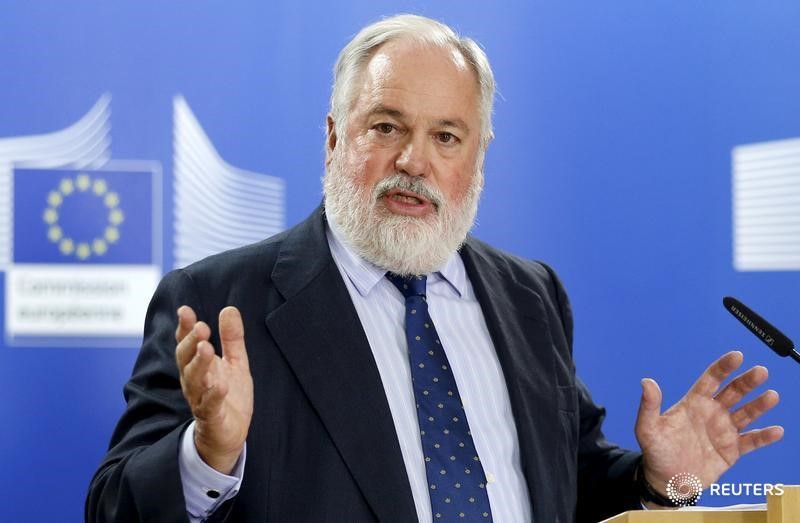By Barbara Lewis
BRUSSELS (Reuters) - The European Union will negotiate day and night at U.N. talks on global warming in Paris to ensure a robust deal, followed up with regular reviews to cap temperature rises at 2 degrees Celsius, the bloc's climate boss said on Wednesday.
Ahead of the Paris conference, which begins on Nov. 30, European Climate and Energy Commissioner Miguel Arias Canete said there was much work to be done and the negotiating text was too long and complex. But he said he was positive there would be an accord.
"We will have a deal in Paris. Of that, I have no doubt," he said. The key was to get the right deal.
"The EU will fight for a very ambitious deal. When you have 196 parties, the easy way out is to agree a minimalistic agreement," he told reporters. "We will work day and night to have an ambitious agreement that is fit for purpose."
The European Union's priorities are that the Paris deal will be followed up with regular reviews to take account of updates to scientific opinion and ensure enough is being done to limit global warming by the end of the century to 2 degrees Celsius (3.6 degrees Fahrenheit) above pre-industrial times.
So far, national climate action plans submitted by more than 170 nations would only limit temperature rises to around 3 degrees Celsius, which is above the cap scientists say can prevent the most devastating consequences of global warming in terms of floods, droughts, desertification and rising sea levels.
Another EU priority is a robust transparency and accountability system to underpin any Paris deal.
The 28-member bloc regards itself as a leader in efforts to curb global warming, but is responsible for less than 10 percent of all greenhouse gas emissions, so it needs global support, especially from the biggest emitters China and the United States. Within Europe, it also has to contain any attempts by Poland to weaken its negotiating stance.
Poland, heavily reliant on carbon-intensive coal, has been vociferous about defending its mining industry after an election in October that brought a more conservative government to power.
Asked about Poland, Arias Canete referred to comments from the nation's new environment minister on Wednesday.

Although the Polish minister said he would work to shelter Poland from the impact of any climate deal, he also said he supported a global pact "as soon as possible", in a softening of tone compared with previous warnings from the government that it was prepared to veto climate action.